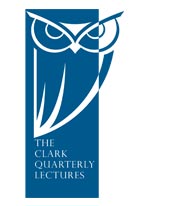Date/Time
Tuesday, October 8, 2013
4:00 pm
Location
William Andrews Clark Memorial Library
2520 Cimarron Street
Clark Quarterly Lecture
—Alex Hernandez, Ph.D. Candidate, UCLA
 Two years after the publication of his seminal novel, Clarissa (1748), and in the midst of a cultural debate over its tragic ending, Samuel Richardson revisited his heroine’s distresses in a series of Job-like reflections on their meaning. Although only a handful were printed for personal distribution by Richardson, Meditations Collected from the Sacred Books, purportedly authored by Clarissa herself, explored the causes of ordinary suffering, grasped for the significance of human pain, and queried the divine order that allowed this state to persist. To this day, a mere seven copies of this intensely personal text remain extant, with the Clark Library’s copy bearing an inscription almost certainly attributable to the wife of Richardson’s attending physician. Reading this text with the novel and its contemporary responses this talk will ask: how do we imagine trauma before “trauma?” A sustained critical attention to their rhetorics confounds easy narratives of Enlightenment secularization and middle class prosperity, and Hernandez will suggest that the novel ultimately evokes what one recent theorist calls the why me? of modern trauma theory, imagining ways in which affliction and personal misfortune sustain actors, discourses, and affective networks.
Two years after the publication of his seminal novel, Clarissa (1748), and in the midst of a cultural debate over its tragic ending, Samuel Richardson revisited his heroine’s distresses in a series of Job-like reflections on their meaning. Although only a handful were printed for personal distribution by Richardson, Meditations Collected from the Sacred Books, purportedly authored by Clarissa herself, explored the causes of ordinary suffering, grasped for the significance of human pain, and queried the divine order that allowed this state to persist. To this day, a mere seven copies of this intensely personal text remain extant, with the Clark Library’s copy bearing an inscription almost certainly attributable to the wife of Richardson’s attending physician. Reading this text with the novel and its contemporary responses this talk will ask: how do we imagine trauma before “trauma?” A sustained critical attention to their rhetorics confounds easy narratives of Enlightenment secularization and middle class prosperity, and Hernandez will suggest that the novel ultimately evokes what one recent theorist calls the why me? of modern trauma theory, imagining ways in which affliction and personal misfortune sustain actors, discourses, and affective networks.
Alex Eric Hernandez works on 18th-century British literature and culture in the English department at UCLA, where he is completing his doctoral degree. A former fellow at the Clark Library, he has published essays on the novel and Alexander Pope. His current project, Modernity and Affliction: The Making of British Bourgeois Tragedy, investigates a series of eighteenth-century dramatic and narrative tragedies concerned with the misfortunes of the middling sort, arguing that these texts imagine modern forms of suffering.

